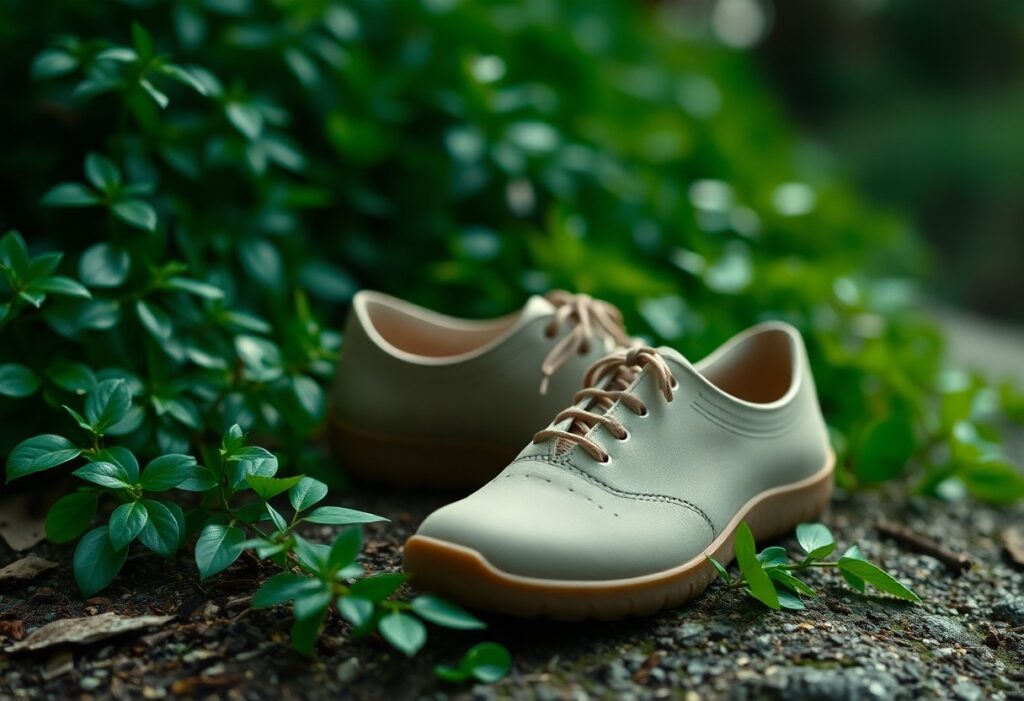
There’s a growing demand for footwear that aligns with your values—minimalist, functional, and kind to the planet. Xero Shoes blend barefoot flexibility with eco-conscious materials, like recycled soles and plant-based dyes. But how sustainable are they? While their carbon-neutral shipping and durable designs reduce waste, some synthetic components still pose challenges. Like walking with a lighter footprint—literally and environmentally—Xero Shoes offer a step toward sustainability, though not without trade-offs. If you’re seeking footwear that prioritizes earth-friendly practices, here’s what you need to know.
Overview of Eco-Friendly Footwear
While traditional shoes often rely on synthetic materials and harmful production methods, eco-friendly footwear prioritizes sustainability at every step. These shoes are designed to minimize environmental impact, using recycled, biodegradable, or plant-based materials while reducing waste and carbon emissions. For barefoot enthusiasts, brands like Xero Shoes combine this ethos with minimalist design, offering a way to tread lightly on the planet—like walking with a lighter footprint, literally and environmentally.
Definition of Eco-Friendly Footwear
Below the surface, eco-friendly footwear refers to shoes made with sustainable materials (e.g., organic cotton, natural rubber) and ethical manufacturing processes. They avoid toxic dyes, excessive packaging, and non-recyclable components, ensuring your choice supports healthier ecosystems and fair labor practices. It’s not just about what you wear but how it’s made.
The Rise of Minimalist Shoe Design
In addition to conventional cushioned shoes, minimalist designs like barefoot shoes have gained traction for their natural feel and environmental benefits. By stripping away excess material, they reduce waste and energy use, aligning with the “less is more” philosophy.
For instance, brands like Xero Shoes use thin, durable soles and lightweight fabrics, reducing resource consumption. This shift reflects a growing awareness that simpler designs can lower your carbon footprint without sacrificing performance.
Importance of Sustainable Practices in the Footwear Industry
Shoe production is a major contributor to pollution and landfill waste, with billions of pairs discarded yearly. Sustainable practices—like recycled plastics or water-based adhesives—help combat this. By choosing eco-friendly options, you support innovation that protects ecosystems and reduces harm.
But the stakes are high: Fast fashion’s reliance on synthetic materials releases microplastics and exploits resources. In contrast, sustainable brands prioritize longevity and circularity, ensuring your shoes don’t contribute to the problem.
Sustainable Materials Used in Xero Shoes
If you’re looking for eco-friendly barefoot shoes, Xero Shoes prioritizes sustainability using recycled PET and hemp, reducing waste and environmental impact. Their commitment to green alternatives ensures your footwear aligns with your values—like walking with a lighter footprint, literally and environmentally.
Recycled PET Laces
Sustainable choices start small, and Xero Shoes’ laces are made from 100% recycled PET, repurposing plastic waste into durable, functional components. Opting for these, you help divert plastic from landfills while enjoying long-lasting performance.
Hemp Uppers
Environmental benefits shine in Xero Shoes’ hemp uppers. Hemp is a low-water, pesticide-free crop that regenerates soil health. Its natural breathability and strength make it ideal for barefoot shoes, offering comfort without compromising the planet.
With hemp’s rapid growth and carbon-sequestering properties, your choice supports a cleaner future. Unlike synthetic fabrics, hemp biodegrades naturally, reducing long-term waste. Plus, its antimicrobial qualities keep your shoes fresher and longer.
Hemp vs. Conventional Materials
| Hemp | Requires 50% less water than cotton |
| Synthetics | Derived from fossil fuels, non-biodegradable |
Environmental Impact of Minimalist Design
Not only do Xero Shoes’ minimalist designs reduce material waste, but they also lower your carbon footprint by requiring fewer resources to produce. The streamlined construction means less energy is used in manufacturing, and the absence of excess padding or synthetic layers minimizes landfill waste. By choosing minimalist footwear, you’re supporting a design philosophy that prioritizes efficiency and sustainability, like walking with a lighter footprint—literally and environmentally.
Lightweight Materials
Environmental benefits shine through Xero Shoes’ lightweight, low-impact materials, such as recycled rubber soles and vegan-friendly fabrics. These choices reduce the strain on natural resources while maintaining performance. You’ll appreciate how these materials cut down on transportation emissions, as lighter shoes mean fewer fossil fuels burned during shipping.
Durability of Xero Shoes
In addition to their eco-friendly materials, Xero Shoes are built to last, reducing the need for frequent replacements. The reinforced stitching and high-quality rubber outsoles resist wear, ensuring your shoes stay functional for years. This longevity directly translates to less landfill waste, making them a wise choice for sustainable living.
Indeed, Xero Shoes’ durability is backed by a 5,000-mile sole warranty, a testament to their commitment to reducing environmental impact. Fewer replacements mean fewer resources consumed, and their repairable design lets you extend their life even further. For eco-conscious consumers, this balance of resilience and sustainability is a game-changer.
Certifications and Ethical Practices
Once again, Xero Shoes demonstrates its commitment to sustainability by adhering to rigorous certifications and ethical practices. Their transparency in sourcing and manufacturing ensures your barefoot shoes align with eco-friendly values. From carbon-neutral shipping to recycled materials, they prioritize reducing environmental harm while delivering high-performance footwear. Like walking with a lighter footprint—literally and environmentally—their efforts reflect a genuine dedication to planet-friendly practices.
Fair Trade Certification
By choosing Fair Trade-certified materials, Xero Shoes supports ethical labor conditions and fair wages for workers. Your purchase contributes to empowering communities and promoting social equity. While not all their products carry this certification, their ongoing efforts to improve supply chain ethics show progress toward a more responsible future.
PETA-Approved Vegan Certification
Impact matters and Xero Shoes’ PETA-Approved Vegan certification guarantees your footwear is 100% free from animal-derived materials. This aligns with a cruelty-free lifestyle while reducing the environmental toll of leather production. Their vegan options prove you don’t have to sacrifice ethics for performance.
Plus, PETA’s approval isn’t just about materials—it’s a rigorous audit of supply chains to ensure no animal exploitation. Xero Shoes’ commitment here means you can trust their claims, avoiding common greenwashing pitfalls in the industry. For eco-conscious consumers, this certification adds a layer of confidence in your sustainable choices.
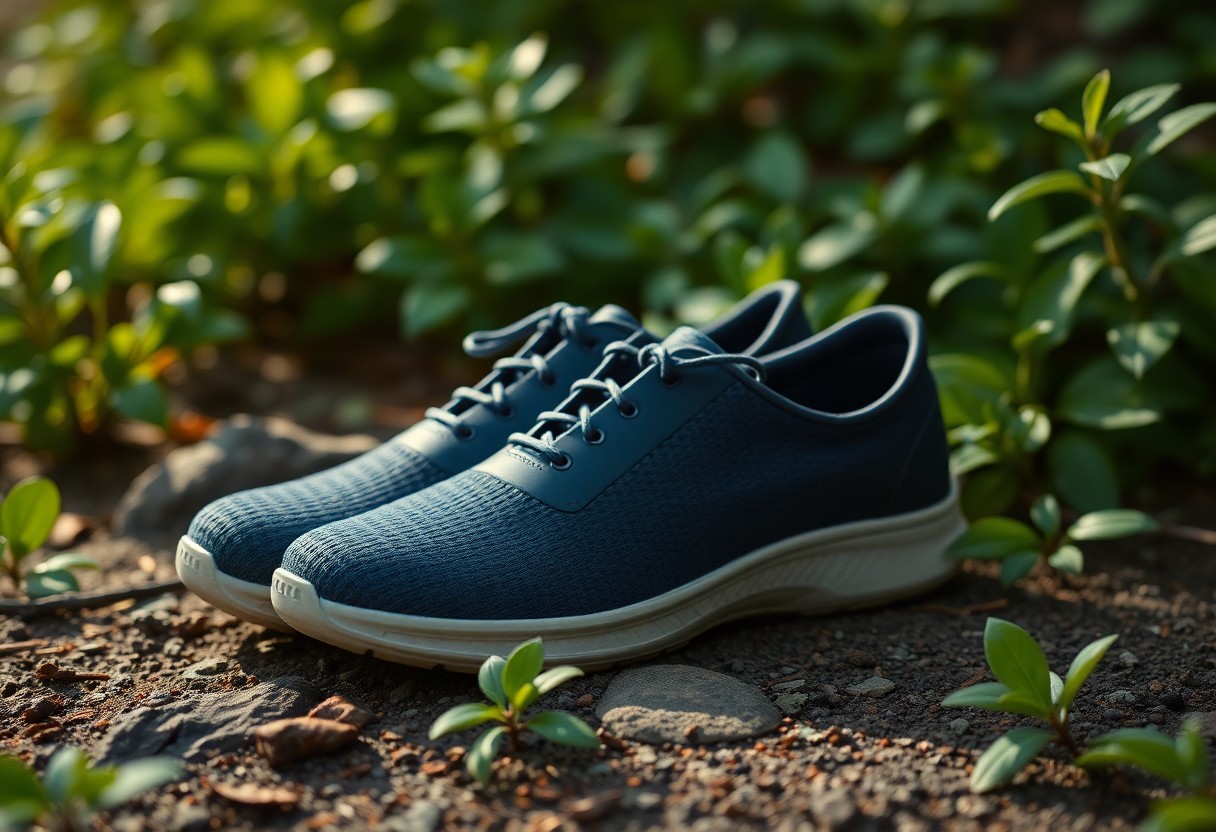
Case Study: Individual Perspectives on Sustainability
Many barefoot shoe enthusiasts share how Xero Shoes align with their eco-conscious values, praising the brand’s minimalist design and sustainable materials. Whether reducing waste or opting for vegan-friendly options, users highlight how these choices mirror their commitment to a greener lifestyle—like walking with a lighter footprint, both literally and environmentally.
Evaluating the Lifecycle Impact
Xero Shoes aim to minimize environmental harm at every stage, from production to disposal. Their durable construction extends wearability, while recyclable components reduce landfill waste. You’ll appreciate how their lifecycle balances performance and planet-friendly practices.
Testimonies from Sustainability Advocates
Evaluating feedback from eco-conscious wearers reveals a strong endorsement of Xero Shoes’ transparency and ethical sourcing. Advocates emphasize how the brand’s efforts, like using recycled materials, resonate with their personal sustainability goals.
A deeper examine these testimonies shows that durability and low-carbon manufacturing are frequently cited as standout features. However, some note room for improvement in end-of-life recycling programs, urging the brand to innovate further in circularity.
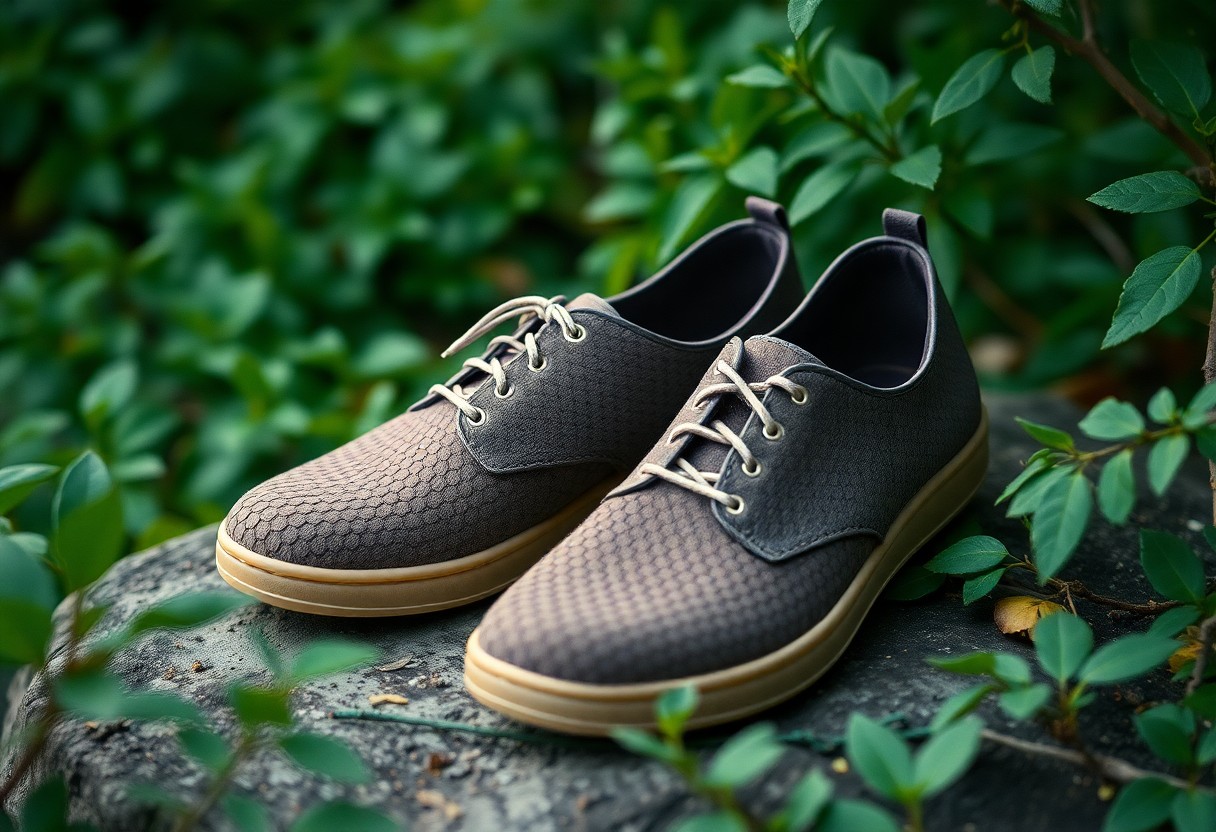
The Role of Consumer Behavior in Sustainability
All sustainable choices begin with you. Your decisions as a consumer shape demand, influence brands, and drive the shift toward eco-friendly practices. By opting for products like Xero Shoes, you support companies prioritizing minimal waste and ethical sourcing, proving that small actions collectively create significant change.
Impact of Purchases on the Environment
Before buying, consider your footprint. Every purchase has ripple effects—from resource extraction to landfill waste. Choosing barefoot shoes made with recycled materials or biodegradable components reduces harm, like walking with a lighter footprint—literally and environmentally.
Consumer Education and Awareness
Understanding the lifecycle of your shoes is key. The more you know, the better your choices. Brands like Xero Shoes transparently share their processes, helping you avoid greenwashing and align with genuine sustainability.
Consumer awareness extends beyond labels. Researching materials, labor conditions, and carbon footprints empowers you to vote with your wallet. Ignorance fuels unsustainable practices, while knowledge fosters accountability and progress.
The Growing Demand for Sustainable Products
The growing interest in eco-friendly footwear reflects a broader shift. As more people prioritize sustainability, brands respond with innovations like plant-based soles and zero-waste packaging, proving your demand drives meaningful industry change.
Behavior shapes markets. Your preference for sustainable options pressures competitors to adapt or risk obsolescence. Fast fashion and synthetic materials decline as conscious consumers champion alternatives, creating a healthier planet step by step.
The Economics of Sustainable Footwear
Like Xero Shoes, your choice of eco-friendly barefoot shoes reflects a growing shift toward sustainable consumerism. While these shoes may come with a higher upfront cost than conventional footwear, their durability and minimal environmental impact often justify the investment. By supporting brands prioritizing ethical materials and production, you contribute to a circular economy, reducing waste and promoting fair labor practices. Like walking with a lighter footprint—literally and environmentally—your purchase aligns with values that benefit the planet and future generations.
Cost Implications for Consumers
Among the factors you’ll consider, the initial price of sustainable barefoot shoes can be higher than mass-produced alternatives. However, their longer lifespan and repairability often offset this cost over time. Brands like Xero Shoes focus on quality materials, meaning fewer replacements and less waste. While the sticker shock might give pause, the value-per-wear makes them a wise financial choice for eco-conscious buyers.
Long-term Benefits of Investing in Eco-Friendly Products
Besides reducing your carbon footprint, eco-friendly barefoot shoes offer health and financial advantages. Their natural design promotes better posture and foot strength, potentially lowering medical costs linked to poor footwear. By choosing sustainable options, you also support innovation in green materials, driving industry-wide change.
For instance, Xero Shoes uses recycled and vegan materials, which minimize resource depletion and pollution. Over time, your investment helps normalize sustainable practices, encouraging more brands to adopt eco-conscious methods. This ripple effect can bring broader environmental benefits, from reduced landfill waste to lower carbon emissions.
Market Trends and Future Predictions
Around the globe, demand for sustainable footwear is rising, with barefoot shoes gaining traction among health- and eco-aware consumers. Brands like Xero Shoes are at the forefront, leveraging biodegradable and recycled materials to meet this demand. As awareness grows, prices may become more competitive, making eco-friendly options accessible to a broader audience.
Trends indicate a shift toward transparency, with consumers demanding ethical sourcing and production details. This push for accountability reshapes the industry, but challenges like greenwashing remain risky. By staying informed, you can make choices that align with sustainability goals, ensuring your purchases drive meaningful change.
Challenges in Sustainable Shoe Production
Despite the growing demand for eco-friendly footwear, producing sustainable barefoot shoes like Xero Shoes has hurdles. The limited availability of certified materials, high production costs, and the need for durable yet biodegradable designs make it a complex process. You might wonder if these challenges compromise sustainability—thankfully, brands committed to innovation are finding ways to overcome them, ensuring your shoes align with your values.
Sourcing of Sustainable Materials
Among the most significant obstacles is securing ethically sourced, eco-friendly materials. Every component must meet strict environmental standards, from recycled rubber soles to plant-based dyes. You’ll appreciate that Xero Shoes prioritizes suppliers with transparent practices, but scaling this responsibly remains a test for the industry.
Balancing Cost and Quality
Behind every sustainable shoe is a delicate equation: affordability versus longevity. Eco-materials often cost more, yet cutting corners risks durability—something you won’t tolerate in footwear designed to last. Brands must strike this balance without passing all costs to the conscious consumer.
Challenges arise when budget-friendly alternatives compromise sustainability. For instance, cheaper synthetic materials might reduce prices but undermine biodegradability. Xero Shoes tackles this by optimizing production efficiency, proving that ethical choices don’t always mean sky-high prices.
Industry Resistance to Change
One significant barrier is the footwear industry’s reluctance to abandon fast-fashion models. Traditional manufacturers often prioritize profit over the planet, making it harder for sustainable brands to compete. Your support for eco-conscious companies like Xero Shoes helps drive systemic change.
Progress can feel slow due to entrenched practices and lobbying against eco-regulations. However, consumer demand—powered by your choices—is pushing brands toward transparency. The shift is happening but requires persistent advocacy from buyers who value sustainability over convenience.
Innovations in Eco-Friendly Footwear Technology
Keep your stride green with Xero Shoes’ cutting-edge advancements in sustainable footwear. Their innovations focus on reducing environmental impact while maintaining performance, blending comfort with eco-conscious design. From recycled materials to low-waste production, these shoes let you walk with a lighter footprint—literally and environmentally.
Advances in Sustainable Materials
Xero Shoes uses recycled polyester, hemp, and plant-based dyes to minimize harm between traditional fabrics and modern eco-alternatives. These materials cut down on water usage and carbon emissions, giving you durable footwear without compromising the planet.
Biodegradable Components
At the forefront of sustainability, Xero Shoes incorporates plant-based outsoles and natural rubber, which break down faster than synthetic alternatives. This reduces long-term waste, aligning your footwear choices with a circular economy.
Innovations in biodegradable tech ensure these components decompose efficiently, leaving minimal environmental trace. By choosing shoes with these features, you actively support reducing landfill burden and microplastic pollution.
Integrating Technology and Sustainability
At the intersection of innovation and ecology, Xero Shoes leverages 3D printing and precision engineering to minimize material waste. Their processes prioritize efficiency, ensuring every step you take is backed by sustainable tech.
Sustainability isn’t just a buzzword here—it’s embedded in their DNA. From solar-powered factories to carbon-neutral shipping, Xero Shoes proves that high-performance footwear can coexist with planet-friendly practices, empowering you to make a difference with every purchase.
Comparison of Xero Shoes with Competing Brands
After evaluating Xero Shoes against other eco-friendly barefoot brands, you’ll notice key materials, durability, and sustainability differences. Below is a quick breakdown:
Comparison of Xero Shoes vs. Competitors
| Xero Shoes | Uses recycled materials, vegan options, and a focus on minimalism. |
| Competitors (e.g., Vivobarefoot, Merrell) | Offer similar eco-claims but may lack transparency in sourcing or durability. |
Overview of Comparable Eco-Friendly Brands
After exploring the market, brands like Vivobarefoot, Merrell, and Freet prioritize sustainability. Here’s how they stack up:
Eco-Friendly Barefoot Shoe Brands
| Vivobarefoot | Wildhide leather and recycled materials are available but at a higher price point. |
| Merrell | It blends eco-materials with conventional ones, balancing cost and sustainability. |
Strengths and Weaknesses of Each
To understand which brand fits your needs, weigh their pros and cons. Xero Shoes excels in affordability and transparency, while Vivobarefoot offers premium materials at a higher cost. Merrell, however, may compromise on full sustainability for durability.
Overview: each brand has trade-offs. Xero’s commitment to vegan and recycled materials stands out, but some users report thinner soles than Vivobarefoot’s rugged designs. Merrell’s hybrid approach appeals to those seeking a middle ground, though it may not satisfy purists.
Market Position of Xero Shoes
Behind its competitors, Xero Shoes carves a niche by balancing eco-consciousness with affordability. While not as globally recognized as Vivobarefoot, its loyal following praises its minimalist ethos and sustainable practices.
Further, Xero’s direct-to-consumer model keeps costs low, but its limited retail presence may deter some buyers. Its transparent supply chain and carbon-neutral initiatives make it a compelling choice for eco-conscious shoppers, though durability debates linger.
Community Engagement and Environmental Initiatives
Despite being a footwear brand, Xero Shoes goes beyond selling products by actively fostering eco-conscious values. They engage in initiatives that align with their sustainability mission, from reducing waste to supporting environmental causes. By prioritizing transparency, they invite you to join their journey toward a greener future—like walking with a lighter footprint, literally and environmentally.
Xero Shoes’ Participation in Environmental Programs
Any brand can claim sustainability, but Xero Shoes backs it up with action. They partner with programs like 1% for the Planet, donating a portion of sales to environmental nonprofits. Their commitment to reducing carbon emissions and using recycled materials shows they’re serious about minimizing their impact—so you can feel good about your purchase.
Building a Community around Sustainability
Any eco-friendly movement thrives on shared values, and Xero Shoes cultivates this by connecting like-minded individuals. Social media, events, and educational content empower you to make informed choices, turning customers into advocates for sustainable living.
And their efforts don’t stop there. Xero Shoes hosts challenges and workshops to inspire deeper engagement, proving that sustainability isn’t just a trend—it’s a lifestyle. By fostering this community, they amplify the impact of every small step toward greener habits.
Encouraging Active Participation Among Consumers
The brand doesn’t just preach sustainability—it invites you to be part of the solution. From recycling old shoes to sharing tips on reducing waste, Xero Shoes provides tools to help you effortlessly minimize your environmental footprint.
Environmental responsibility starts with awareness, and Xero Shoes makes it easy. Their #XeroImpact campaign encourages you to share your eco-friendly journey, creating a ripple effect that inspires others. When you choose Xero, you’re not just buying shoes but joining a movement.
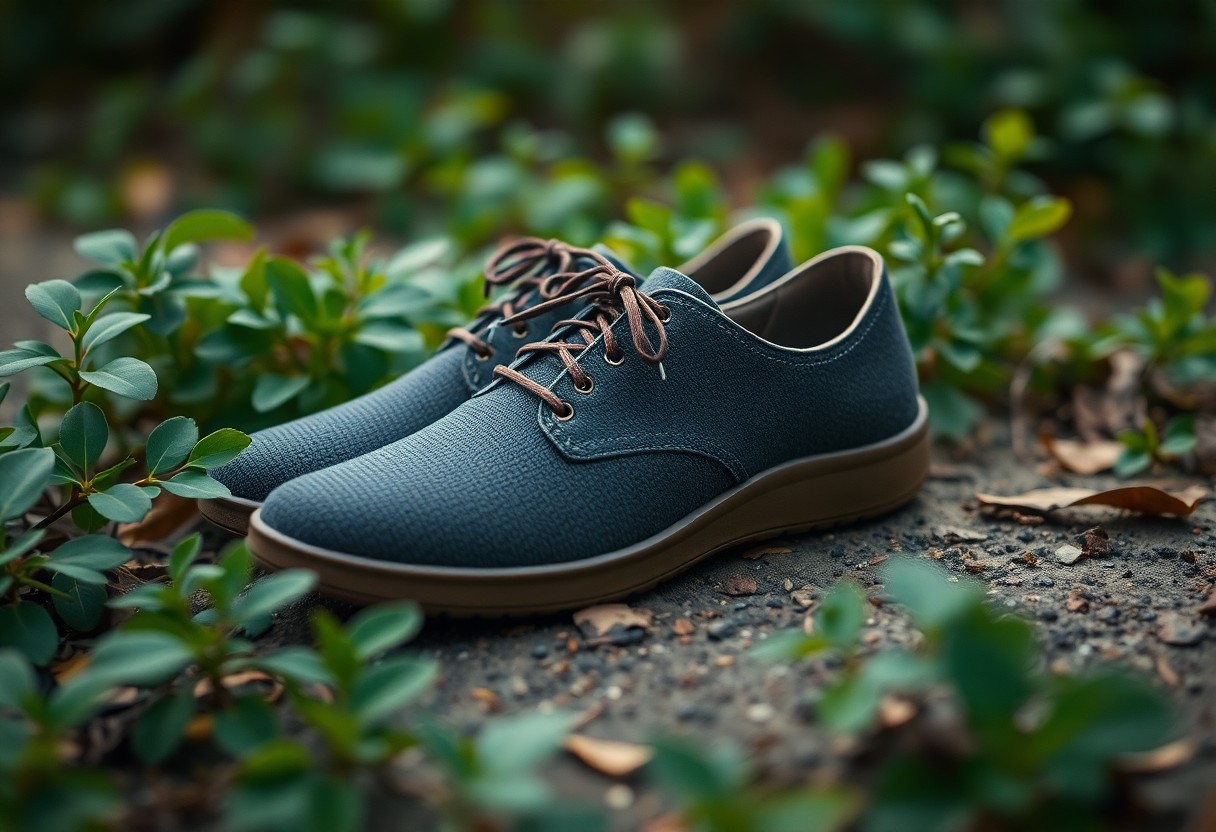
FAQ on Sustainable Footwear
Now, you might wonder how sustainable barefoot shoes genuinely are. From materials to manufacturing, Xero Shoes prioritizes eco-friendly practices, like using recycled rubber and vegan-friendly options. Their commitment to durability means fewer replacements, reducing waste. However, no brand is perfect—always check their transparency reports for full impact.
Common Questions about Eco-Friendly Materials
Above all, you’ll ask: “Are these materials truly sustainable?” Xero Shoes uses plant-based dyes, recycled soles, and breathable meshes. While synthetic blends exist, their focus on low-impact production helps offset carbon footprints—like walking with a lighter footprint, literally and environmentally.
Myths and Facts About Minimalist Shoes
With so much debate, you may hear claims like “barefoot shoes lack support.” In reality, they strengthen your feet naturally. Myths about discomfort often stem from improper transition periods—your body needs time to adapt.
Hence, minimalist shoes aren’t just a trend but a healthier alternative when used correctly. Studies show improved posture and reduced joint stress, but rushing into them can cause strain. Listen to your body and transition gradually.
Understanding Product Certifications
Facts matter: Look for certifications like Bluesign® or OEKO-TEX®, which ensure non-toxic, responsibly sourced materials. Xero Shoes’ adherence to these standards signals trust, but always verify claims—greenwashing is rampant.
Consequently, certifications aren’t just labels; they’re your safeguard against harmful practices. Prioritize brands with third-party audits, as these prove genuine commitment to sustainability, not just marketing buzzwords.
Future of Sustainable Footwear
For the footwear industry, sustainability is no longer a niche trend but a necessity. Brands like Xero Shoes lead the charge with minimalist designs and eco-friendly materials, proving that comfort and conscience coexist. The future will likely see more innovations in biodegradable soles, recycled fabrics, and carbon-neutral production, helping you reduce your environmental impact—like walking with a lighter footprint, literally and environmentally.
Trends Driving Eco-Friendly Innovations
To meet growing demand, brands embrace circular economy principles, such as shoe recycling programs and plant-based materials. Advances in 3D knitting and algae-based foams reduce waste, while supply chain transparency ensures you know exactly what you’re stepping into. These trends reflect a shift toward footwear that is as kind to the planet as it is to your feet.
Predictions for the Footwear Industry
InExpect, biodegradable shoes will become mainstream in the next decade, with brands competing for the lowest carbon footprint. Customization through AI may reduce overproduction, and vegan leather alternatives could dominate the market. Your choices will increasingly shape industry standards, pushing brands toward greener practices.
And as regulations tighten, companies failing to adopt sustainable methods may face consumer backlash or legal penalties. The rise of carbon labeling will help you make informed decisions, turning every purchase into a vote for the planet.
Role of Consumer Activism in Shaping Sustainability
Among the most powerful forces driving change is your voice. Social media campaigns and boycotts have pressured brands to ditch harmful practices, while grassroots movements demand accountability. By supporting ethical brands, you’re not just buying shoes but fueling a revolution.
EcoFriendly activism has already led to bans on toxic glues and child labor in supply chains. However, greenwashing remains a risk, so staying informed is key. Your vigilance ensures companies prioritize real impact over marketing gimmicks.
Conclusion
Overall, Xero Shoes offers a sustainable choice for eco-conscious consumers seeking barefoot footwear. Prioritizing recycled materials, minimal waste and durable designs aligns with your values of reducing environmental impact. Like walking with a lighter footprint—literally and environmentally—their approach balances performance with planet-friendly practices. While no product is perfect, Xero Shoes is committed to sustainability, making it a strong contender in the barefoot shoe market. If you’re looking for footwear that supports your active lifestyle while respecting the Earth, these shoes are worth considering.



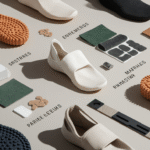



It’s inspiring to see the conversation around sustainable footwear gaining traction! I’ve been on a quest to find shoes that align with my values, and the principles behind Xero Shoes resonate deeply with me. The balance between functionality and environmental responsibility can be tricky to navigate, but it’s encouraging to see companies prioritizing eco-friendly practices, especially in an industry that has historically been less than sustainable.
It’s great to hear that you’ve been on this quest—it sounds like you’re on a sustainable shoe safari! I totally get the struggle; hunting for footwear that doesn’t have you feeling like you’re wearing a weighty carbon footprint is no small feat.
It’s great to hear about your journey towards finding sustainable footwear. It really does feel like a pivotal moment when more brands like Xero Shoes are stepping up to integrate eco-friendly practices into their designs. The balance between functionality and environmental responsibility is indeed challenging, especially when consumers are looking for performance without compromising their values.
It’s interesting that you mention the balance between functionality and environmental responsibility. I’ve found that many brands are starting to reconsider traditional practices in footwear to make more sustainable choices, but it’s still a learning curve. You’d think with all the technology available these days, companies would rapidly evolve, but sometimes it feels like change comes too slowly.
I totally relate to your journey; I recently came across a brand that prioritizes comfort and sustainability, and it really struck a chord with me as well.
‘Groundies Shoes: Step into Comfort with Groundies Shoes!’
https://myshoesfinder.com/barefoot-shoes/groundies-shoes/.
It’s great to hear you’re on that quest for sustainable footwear. The conversation around eco-friendly practices is definitely evolving, and more people are starting to recognize the impact of their choices. Xero Shoes does a solid job of aligning its products with those values, especially by focusing on minimalism and functionality, which can often get lost in the style-over-substance shuffle that defines much of the fashion industry.
It’s refreshing to see brands like Xero Shoes embracing eco-conscious practices while catering to the minimalist movement. My journey towards sustainable living aligns closely with this shift in footwear choices. I recently switched to a pair of shoes made from recycled materials, and it made me realize how much our choices impact the environment.
It’s great to hear your thoughts on this! The shift towards sustainable choices in footwear is more than just a trend—it’s a response to the need for more eco-friendly options in our daily lives. Your experience with shoes made from recycled materials highlights how small changes can lead to bigger impacts. It’s interesting to consider how our footwear can tell a story about our values and priorities.
It’s really interesting to see how the conversation around sustainable footwear is evolving, especially in light of increasing consumer awareness about the environmental impact of our purchases. I’ve been on a bit of a journey myself, trying to shift my choices towards products that reflect my values, particularly when it comes to eco-friendliness.
It’s great to hear about your journey towards more eco-friendly choices. The evolving conversation around sustainable footwear feels like a reflection of a larger cultural shift towards more conscious consumerism, doesn’t it? I think it’s fascinating how brands are starting to respond to this demand by innovating not just in materials but also in their entire supply chains.
I love the idea of footwear that aligns with values, especially when it comes to sustainability! Xero Shoes seem like a fantastic option for those of us who are mindful of our environmental footprint. I’ve personally been exploring more eco-friendly choices in my wardrobe, and I appreciate how minimalist designs not only have a smaller ecological impact but often promote a healthier lifestyle too.
I really appreciate how you’ve highlighted the balance between sustainability and functionality in footwear. It’s so refreshing to see brands like Xero Shoes taking steps (pun intended) to integrate eco-friendly practices into their designs. I’ve been diving into minimalist footwear lately, and I love the idea of barefoot flexibility. It’s almost like reconnecting with nature, and I’ve noticed my foot strength improving as a result!
It’s great to hear how much you’re enjoying your journey into minimalist footwear. The connection to nature that you’re experiencing is one of the fascinating aspects of transitioning to this kind of footwear. It really does change your relationship with how you walk and move through the world. I’ve spoken to a lot of people who have made the switch, and many share similar stories of feeling more grounded and aware of their surroundings.
It’s fascinating how the world of footwear has become a microcosm of our broader environmental challenges—kind of like that friend who’s always pushing kale smoothies at brunch but is secretly binge-watching reality TV! Xero Shoes do seem to be making strides, quite literally, toward a more sustainable future. But let’s be real, I sometimes feel like the more eco-friendly our shoes are, the more they resemble what I wore in elementary school when my mom would let me have a hand-me-down pair of “almost the same color” sneakers!
This post raises some vital points about the intersection of sustainability and footwear design, particularly in the context of rising consumer demands for products that not only serve functional purposes but also align with personal values. The mention of Xero Shoes is particularly interesting, as their commitment to sustainability reflects a growing trend in the industry. However, it’s essential that we scrutinize the components that make up these eco-friendly initiatives, as you noted regarding synthetic materials.
I really appreciate your exploration of the growing demand for eco-friendly footwear. It’s so refreshing to see brands like Xero Shoes making strides in this direction, especially when so many traditional shoes lean heavily on synthetic materials. I’ve dabbled in barefoot running, and I’ve always loved the freedom and connection to the ground that it provides. But, I have to admit, finding shoes that are both functional and environmentally friendly has been a bit of a challenge.
This discussion on eco-friendly footwear resonates deeply with me, as it exemplifies a broader shift in consumer consciousness that prioritizes sustainability. While I’ve only recently started to explore brands like Xero Shoes, their approach to merging barefoot flexibility with environmentally responsible practices is commendable. However, the question of how truly sustainable a product is extends beyond its materials.
Your exploration of eco-friendly footwear highlights an important shift in consumer values and the ongoing quest for sustainability in fashion. The balance Xero Shoes attempts to strike between barefoot flexibility and sustainable materials is commendable, yet it does raise questions about the long-term impact of synthetic components.
I really resonate with your insights on the evolving landscape of footwear, especially regarding how our choices can reflect our values. It’s fascinating to see how much attention eco-conscious designs are gaining, particularly among those of us who are looking to lessen our impact on the environment. I’ve been exploring this area, trying to find that perfect balance between functionality and sustainability, so your mention of Xero Shoes caught my eye.
It’s great to hear that the evolving landscape of footwear resonates with you. The shift towards eco-conscious designs is certainly a noteworthy development. It reflects not just a trend but a deeper awareness of how our consumer choices intersect with environmental impact.
I appreciate how you’ve highlighted the balance between sustainability and functionality in footwear. Xero Shoes really do seem to embody this ethos by using innovative materials like recycled soles and plant-based dyes. I’ve been on a journey to find shoes that not only feel good on my feet but also align with my values. It’s empowering to see brands moving towards carbon-neutral shipping—this kind of commitment really encourages the industry to think more sustainably.
Your discussion on Xero Shoes and the burgeoning demand for eco-friendly footwear raises some compelling points. It’s fascinating to witness how consumer consciousness has evolved; we’re no longer just looking for functionality and style but are also increasingly seeking products that resonate with our values. The idea of walking with a lighter footprint is quite profound, in both the physical and environmental sense.
You raise some compelling points about the balance between eco-conscious initiatives and the challenges inherent in using synthetic materials. It’s encouraging to see brands like Xero Shoes leading the charge toward sustainability, particularly with their focus on recycled and plant-based components. However, it’s essential for consumers to be aware of the trade-offs involved, especially when it comes to the durability and environmental impact of synthetics.